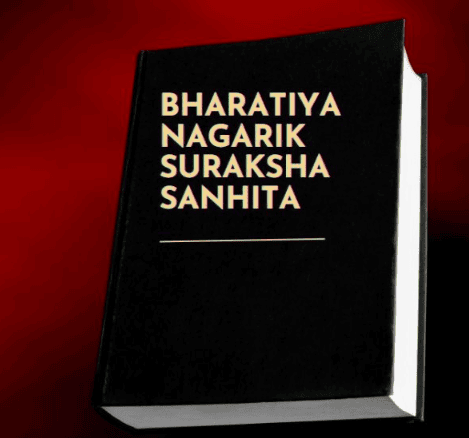Bharatiya Nagarik Suraksha Sanhita 2023: History, Features & More | Indian Polity for UPSC CSE PDF Download
Introduction
The Bharatiya Nagarik Suraksha Sanhita 2023 (BNSS) replaces the outdated Code of Criminal Procedure, 1973 (CrPC) with a modernized legal framework designed to address current challenges. Key aspects of the BNSS include:Forensic and Technological Integration: The BNSS emphasizes the use of forensic and technological advancements in investigating serious crimes to enhance accuracy and efficiency.
Timely Judicial Process: The Bill establishes specific timelines to expedite legal proceedings and reduce the extensive backlog of cases.
Rebalanced Police Powers: The BNSS redefines police powers, incorporating safeguards to prevent misuse while promoting transparency in detention and custody practices.
Revised Bail and Detention Rules: It revises provisions related to bail and detention to better protect the rights of undertrial prisoners, aligning with human rights standards and ensuring fairer treatment for the accused.

Background
- The Code of Criminal Procedure, 1973 (CrPC) is a foundational procedural law for administering the Indian Penal Code, 1860 (IPC). It outlines the procedures for investigation, arrest, prosecution, and bail. Originally enacted in 1861 to unify India's disparate legal systems, it has undergone several amendments, including significant changes in 1973 and 2005 to introduce anticipatory bail and plea bargaining, respectively. Despite these updates, the CrPC has struggled with case backlogs, trial delays, and issues affecting marginalized groups.
- In response to these issues, the Bharatiya Nagarik Suraksha Sanhita 2023 (BNSS) was introduced on August 11, 2023, to replace the CrPC. This new Bill aims to modernize legal procedures, including bail, property seizure, and police powers, and has been reviewed by the Standing Committee on Home Affairs.
Need for Replacing the CrPC with the Bharatiya Nagarik Suraksha Sanhita 2023
- Modernization: The CrPC, rooted in colonial India, is outdated for addressing modern challenges like cybercrime and organized crime. The BNSS introduces provisions to address today's technological and forensic needs.
- Efficiency and Speed: The BNSS seeks to reduce case backlogs and delays by setting clear timelines for medical reports and judgments.
- Enhanced Forensic Integration: The Bill mandates forensic investigations for serious crimes, leveraging modern technology for evidence collection and criminal investigations.
- Balanced Police Powers: The BNSS revises police powers, introducing safeguards to prevent misuse while improving transparency in detention and custody.
- Rights of the Accused: The BNSS aims to better protect undertrial prisoners and align more closely with Supreme Court human rights guidelines, ensuring fairer treatment.
- Streamlined Procedures: The BNSS clarifies offense categorization and judicial responsibilities, reducing procedural ambiguities and overlaps with existing laws.
Key Features of the Bharatiya Nagarik Suraksha Sanhita 2023
Separation of Offenses: Distinguishes between cognizable and non-cognizable offenses, with different arrest and investigation procedures.
Nature of Offenses: Differentiates between bailable and non-bailable offenses, affecting bail rights.
Detention of Undertrials: Extends the exclusion from bail to life imprisonment cases and multiple pending cases, refining previous provisions.
Medical Examination: Permits any police officer to request medical examinations, broadening previous restrictions.
Forensic Investigation: Mandates forensic analysis for serious crimes and requires states without forensic facilities to use those in other states.
Signatures and Finger Impressions: Expands the scope of evidence collection to include finger impressions and voice samples.
Timelines for Procedures: Sets specific timelines for medical reports, judgments, and investigation updates to expedite legal processes.
Hierarchy of Courts: Omits provisions for designating metropolitan areas, focusing on a clear hierarchy from Magistrate’s Courts to the Supreme Court.
Issues Concerning the Applicability of Bharatiya Nagarik Suraksha Sanhita 2023
- Expansion of Police Powers: The BNSS proposes changes to detention and police custody procedures that may complicate bail and custody. Concerns include fragmented custody periods, unclear detention timeframes, and handcuff use.
- Rights of the Accused: Restrictions on bail and plea bargaining could affect undertrial prisoners and prison overcrowding. The BNSS's allowance for successors to testify might compromise evidence credibility.
- Overlaps with Existing Laws: Potential redundancies and overlaps with existing laws, such as data collection for criminal identification and senior citizen maintenance, may lead to confusion and inefficiencies.
Conclusion
The Bharatiya Nagarik Suraksha Sanhita 2023 (BNSS) aims to replace the outdated Code of Criminal Procedure, 1973 (CrPC) with a modernized framework. While it retains many existing provisions, it introduces significant changes to address contemporary legal challenges. The BNSS seeks to balance law enforcement efficiency with individual rights protection. However, concerns about increased police powers, treatment of undertrials, and potential legal overlaps need careful attention to ensure that the BNSS effectively serves its purpose without infringing on individual rights.
|
142 videos|777 docs|202 tests
|





















